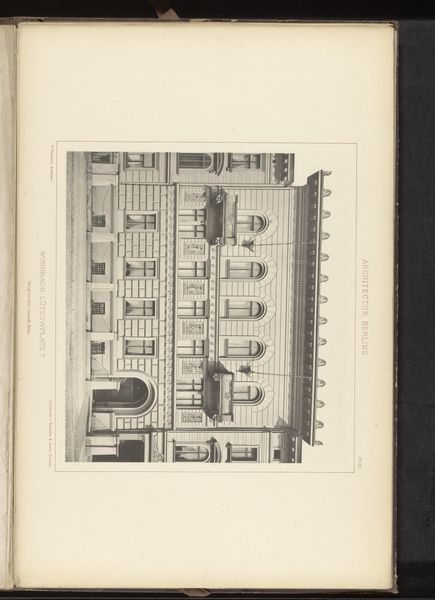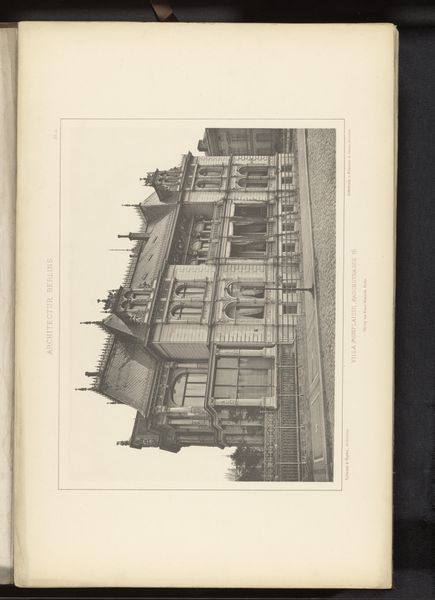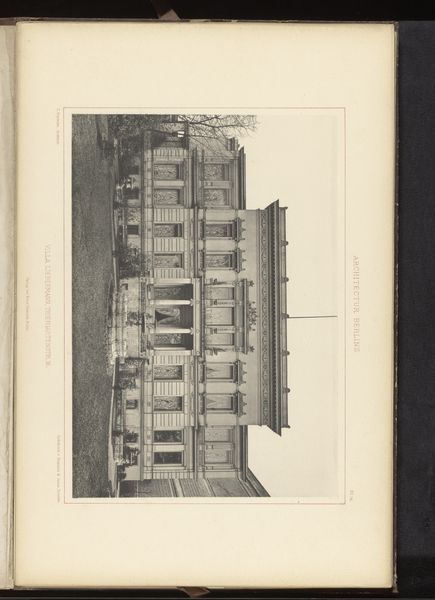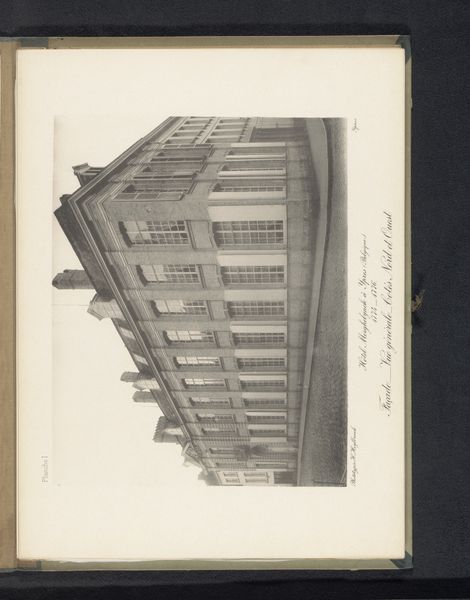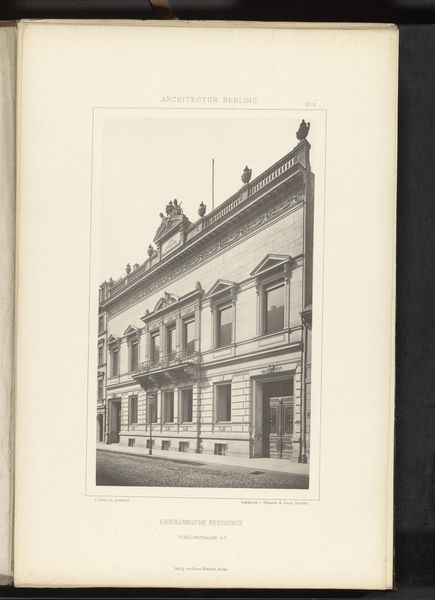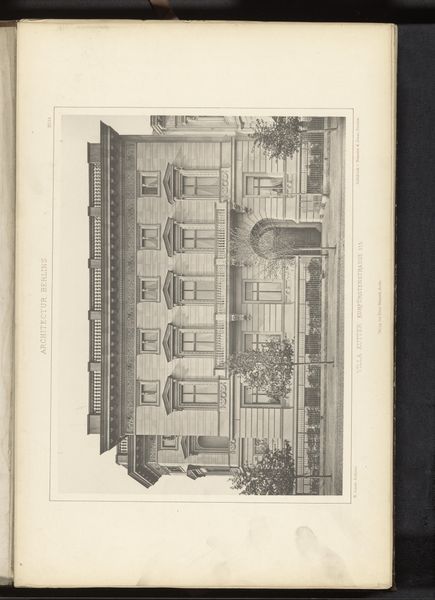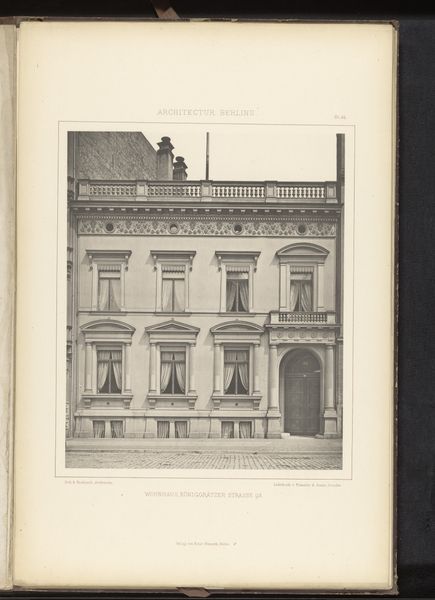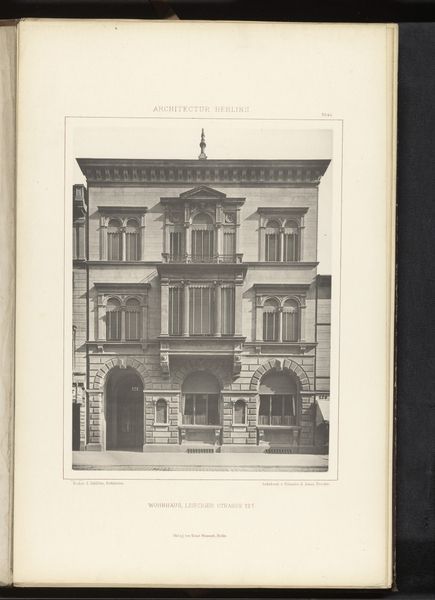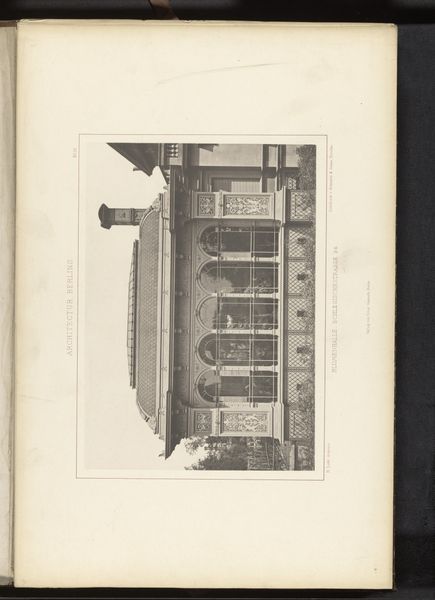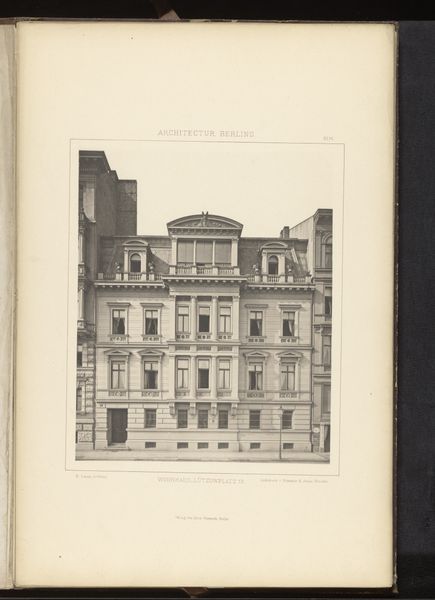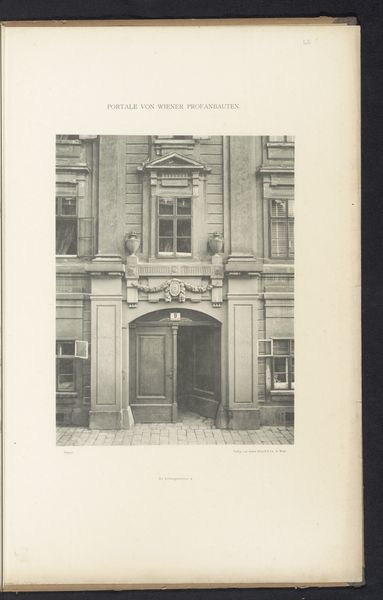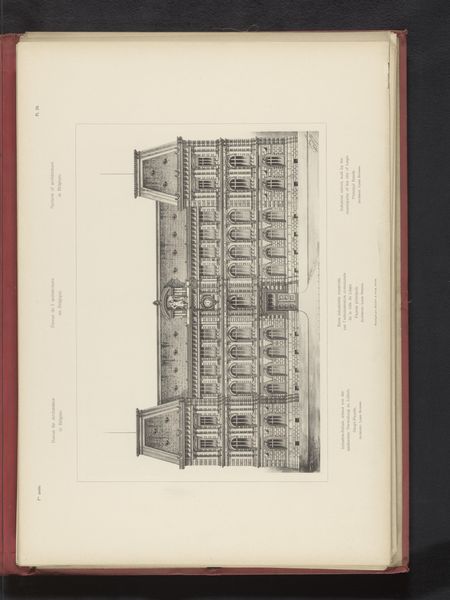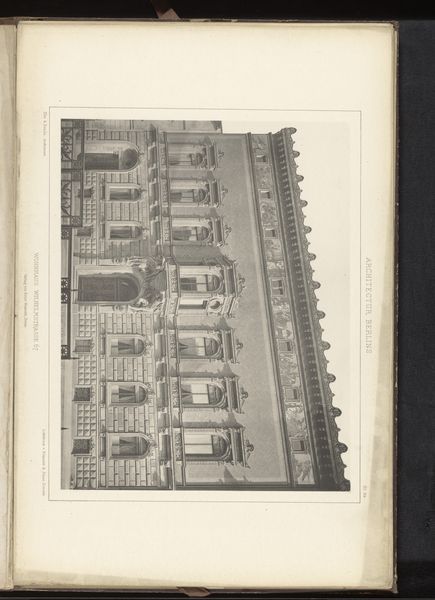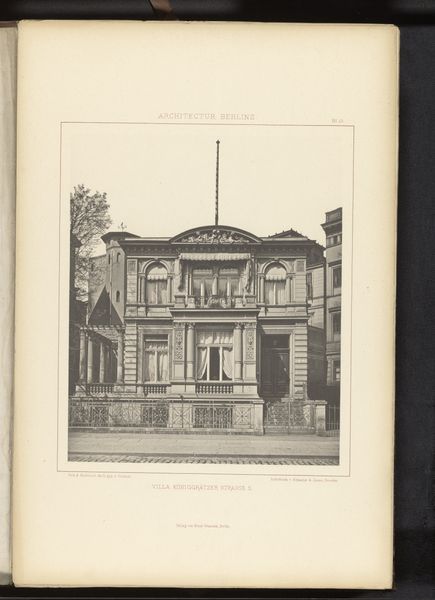
Gezicht op Villa Joachim aan de Beethovenstrasse 3 in Berlijn, Duitsland before 1877
0:00
0:00
anonymous
Rijksmuseum
drawing, print, pen, architecture
#
drawing
#
aged paper
#
toned paper
# print
#
old engraving style
#
sketch book
#
personal sketchbook
#
pen-ink sketch
#
pen and pencil
#
pen work
#
sketchbook drawing
#
pen
#
cityscape
#
sketchbook art
#
architecture
Dimensions: height 227 mm, width 324 mm
Copyright: Rijks Museum: Open Domain
Editor: Here we have an architectural drawing titled "Gezicht op Villa Joachim aan de Beethovenstrasse 3 in Berlijn, Duitsland," made before 1877, by an anonymous artist. It's currently housed at the Rijksmuseum. I’m immediately struck by the precision of the lines. It feels like a portrait of a very specific time and place. What do you see in this piece? Curator: This isn't merely a building, it's a symbol, an echo of values embedded in Berlin's history. Think about the classical motifs employed – the symmetry, the ornamentation above the windows. These choices weren’t arbitrary; they consciously recall the architecture of ancient Greece and Rome. What does that evoke for you? Editor: Order, rationality, the Enlightenment perhaps? Curator: Precisely! This villa declares its allegiance to those ideals. The architect utilizes these established visual codes to project an image of sophistication, stability, and cultural continuity. What feelings are brought forth by these established codes? Are there other potential symbols at play in this composition, hinting to class, social hierarchy or more? Editor: I see what you mean. The house almost becomes a stage for projecting an identity. It's like the family wanted to visually declare their place in society. The symmetry and calculated elegance can feel imposing. Is there a darker side to that deliberate symbolism? Curator: It absolutely cuts both ways. While projecting ideals of order, it may inadvertently enforce those codes. Do the architectural codes of the building become codes for life? A house so intentionally constructed surely carries both aspirations and limitations. Do you get any impressions of interior vs. exterior, the public presentation as opposed to the life that exists within its walls? Editor: That's a lot to consider. I initially saw only a neat depiction of a building, but I’m realizing the facade conveys stories far beyond the bricks and mortar. I had no idea of all the context packed in its symbols and style. Curator: It’s like unlocking a cultural memory stored within its walls. We begin to read architectural lines and motifs like sentences, revealing not just design, but aspiration, power, and belonging. What a powerful statement it conveys.
Comments
No comments
Be the first to comment and join the conversation on the ultimate creative platform.
